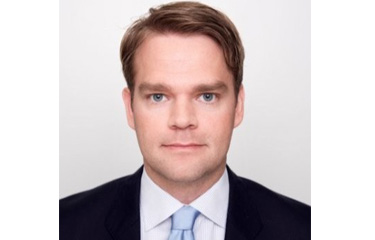Columbi Salmon forges ahead with Belgium RAS farm plans

A recent NOK 162 million (USD 18.6 million, EUR 15.9 million) funding round by Columbi Salmon has confirmed an ongoing interest by some of Norway’s biggest seafood backers in recirculating aquaculture system-based salmon farming.
Amongst others, the shares drew the interest of Broodstock Capital owner Ferd, the majority shareholder in SalMar and Insula owner Kverva Finans; and the company’s founders, the Refsnes family, which remains the largest Columbi Salmon shareholder with 43 percent of total shares.
Kverva’s involvement strengthens a collaboration between the Witzøe and Refsnes families, following SalMar’s purchase of 45 percent of the shares in Refsnes Laks. Norwegian billionaire Gustav Witzøe, who owns Kverva, is the principal owner and CEO of SalMar.
In total, Columbi Salmon has raised NOK 482 million (USD 55.4 million, EUR 47.4 million) over the past nine months.
“We’re very proud to have some of the world’s leading private aquaculture investors as our owners,” Columbi Salmon CEO Anders Hagen said in a news release.
The Refsnes family are veterans of the Norwegian salmon industry, whose decision to set up Columbi Salmon was founded on a desire to innovate production to produce salmon with an improved environmental footprint, according to a company press release.
Columbi Salmon’s aim is to become the European Union’s leading sustainable onshore salmon farming company. The first part of its plan entails building and operating a land-based salmon farm in Ostende, Belgium, followed by the construction of further production facilities throughout Europe.
Columbi entered into an agreement with Billund Aquaculture in late 2020 for the development of its farming system. The Ostende RAS farm will produce between 12,000 and 15,000 metric tons of salmon each year, with vegetables and lettuce grown on the fish sludge and water used in the production process.
“Our experiments indicate that salmon production can become carbon-neutral, since the plants bind up carbon from fish production, through both water and air,” Hagen said.
Hagen said Ostende was chosen as the site of the Belgium facility in large part because 25 percent of global salmon consumption takes place within nine hours of driving time from the farm. That proximity is good for both delivering the freshest product possible, and for reducing environemtnal impact as it will result in minimized emissions from transportation and maximized fish shelf-life, Hagen said.
“The facility in Ostend will be the world’s most-advanced, safe, and sustainable RAS farm. Hence, our production will be both profitable, with low emissions and good animal welfare,” Hagen said.
A public listing for the company is upcoming, Hagen said.
“We’ve long communicated that we’ll go public sometime in the future. However, we’re not in a hurry, and with this capital raise, we’ll be on the right track towards realising the facility in Belgium. Quality is important in everything we do, and although we’re impatient, out thinking is very long-term,” he said.
News of the investment came as the wider industry questioned whether RAS developments for growing harvest-sized salmon are moving too fast, in the wake of a scourge of issues that have recently affected RAS farmer Atlantic Sapphire. This company logged net losses of USD 51.5 million (EUR 44 million) for the second quarter of 2021, resulting in a wipe-out of all its gains made on the Oslo Stock Exchange in the past three years. A major fire at its facility in Denmark this month has added to the company’s woes.
Photo courtesy of Anders Hagen/LinkedIn






Share